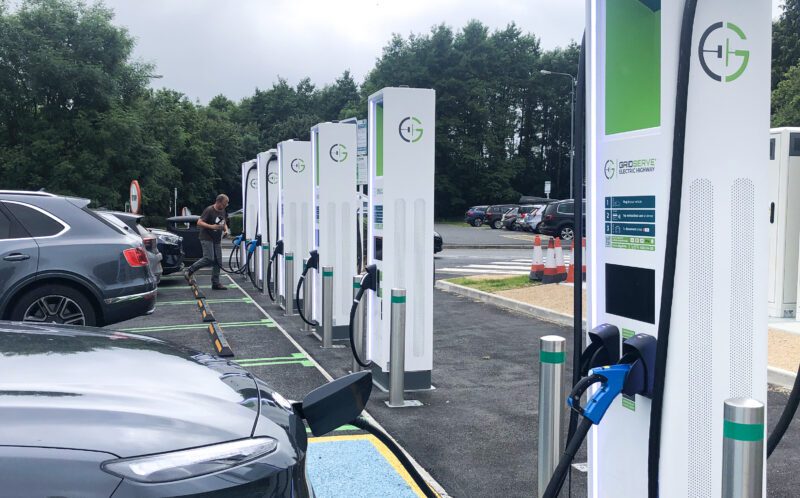Chargers for taxi bases
Uncertainty surrounding the rollout of fast chargers has led insurance broker Patons to team up with a leading EV charging equipment provider and installer to fit EV charging equipment so taxi drivers can recharge at their own base.
Through the partnership, there is usually no upfront cost to the base owner and the cost of the equipment is covered over several years through the cost of the electricity supplied, which is still competitive compared to public-use fast and super-fast charging stations. The base owner chooses who has access to the equipment and can open it to the public, other businesses or keep it as a private charging station, to be used exclusively by their own fleet.
This will give taxi drivers the one thing they need to make the switch to EV – the confidence that it will get them and their fares where they need to go with no more hassle than they have now in a petrol or diesel cab.
In simple terms, they want something with a decent range and can charge up whenever they need to so they can be on their way again in a matter of minutes.
Public chargers
They can’t keep fares waiting while they spend time recharging or queueing for charging points. Also, the cost of using public chargers is significantly higher than the cost of charging at home, for example. These added expenses need to be taken into account by taxi drivers who already face rising costs including taxi insurance, maintenance and repairs.
To keep the taxi industry moving, these public chargers need to be at key points, such as along all major roads and at existing petrol stations and motorway services.
The Government has set milestones towards achieving this, enabling it to provide a sustainable alternative when the sale of new petrol and diesel vehicles is banned in Britain from 2030.
But there are concerns that it is off course with its drive to get the infrastructure in place by then.
Targets
The RAC told Professional Driver magazine that the Government is unlikely to meet its target of six or more rapid or ultra-rapid charging points at every motorway service area in England by the end of the year.
The motoring organisation found that only 27 of 119 motorway services (23%) on ZapMap currently have the target number of chargers to serve the UK’s estimated 760,000 battery electric vehicles.
Professional Driver magazine reported: “The RAC’s research found there are around 400 high-powered charging units situated at motorway services capable of charging 682 electric cars at one time. This means there is currently an average of just 3.4 rapid or ultra-rapid chargers at motorway services.”
It also found that six motorway services in England don’t have any high-powered chargers.
But these concerns have been played down by EV charger installer Gridserve, which said the report was “premature”, adding: “Gridserve is laser focussed on delivering six or more high-power chargers at all Moto and Roadchef locations by the end of the year.”
On track
The company told Professional Driver magazine: “This is not straightforward, and there are issues outside of our control, particularly relating to the timeframes for energising new grid connections. However, we have the funding, the supply chains, the partnerships, and the expert teams all in-place to meet Gridserve’s contribution to delivering the Governments 2023 target.
“Given we are less than halfway through the year, and we have considerable momentum with dozens of additional sites in and entering construction over the next few months, at least from Gridserve’s perspective, we would suggest that the RAC report is a little premature.”
Despite the assurances from Gridserve, the RAC is standing by its findings.
EV spokesperson Simon Williams said: “Our findings show there is much work to be done before the end of the year if the Government’s target of having six high-powered chargers at every motorway service area is to be met. Installing these types of units is not straightforward as connecting to the electricity grid is expensive and time-consuming, but clearly more needs to be done to make this process simpler than it is currently.”
Taxi base chargers
There are several elements to an agreement between a taxi base and the charger installer, and these may be dictated by length, number of vehicles, usage. Agreement lengths vary but will generally be a minimum of three years.
To find out more about whether our EV package could be right for your taxi business, complete the form and we’ll call you to discuss the options.
We also advise you to check with your liability insurer to see if there are any additional conditions for electric charge points.


